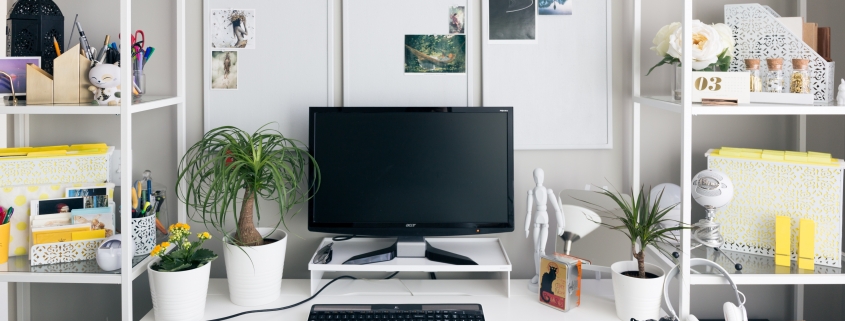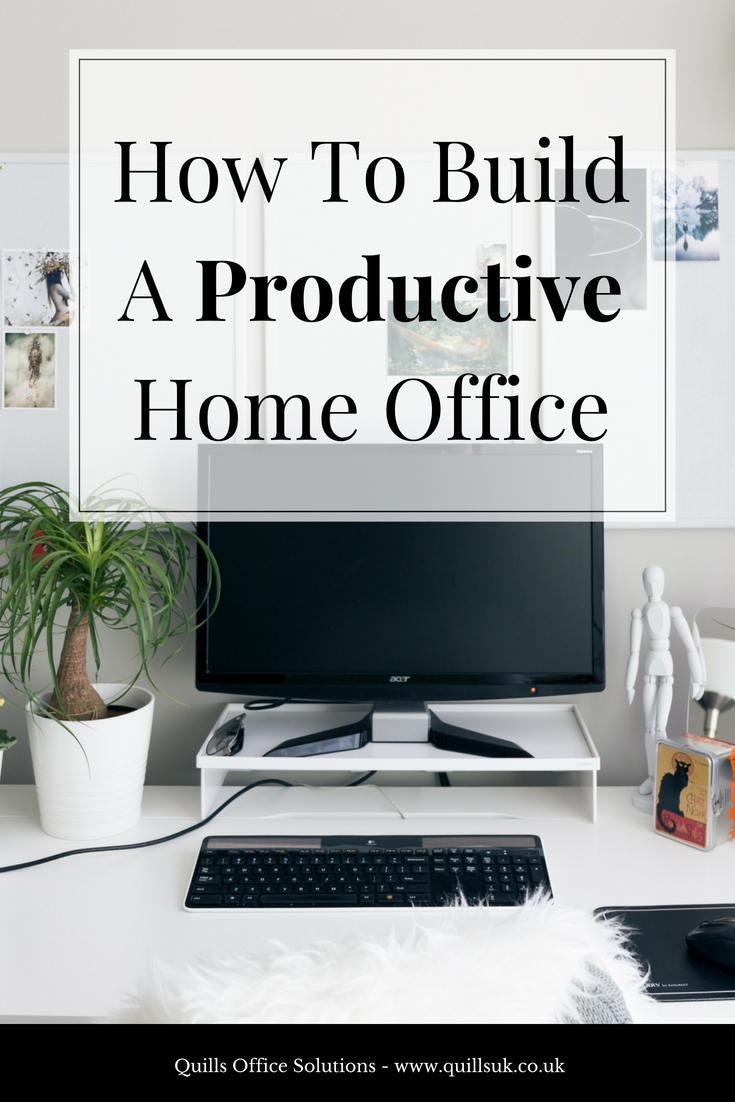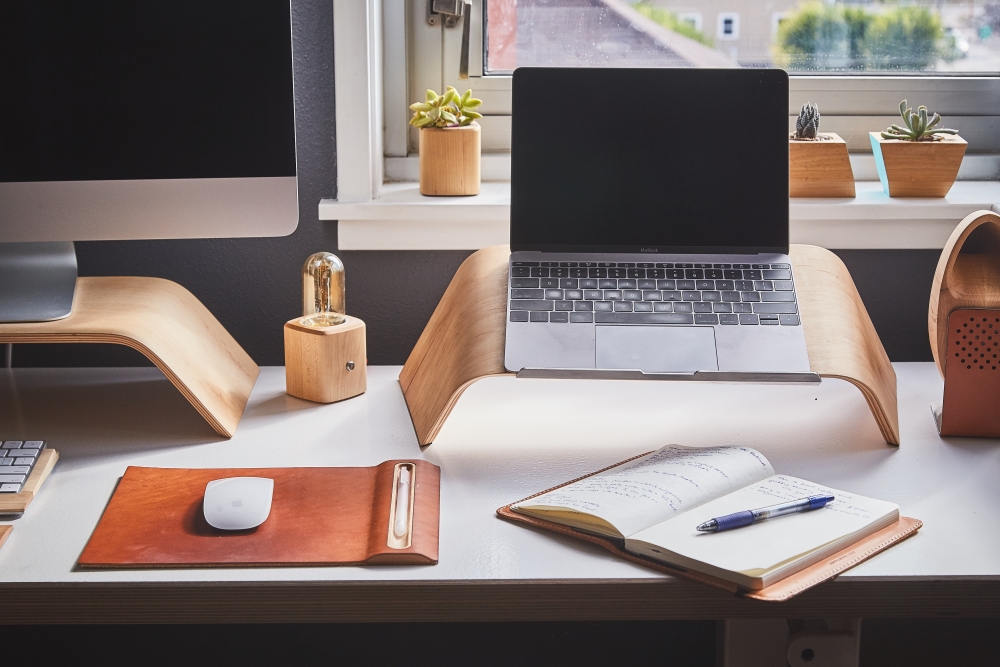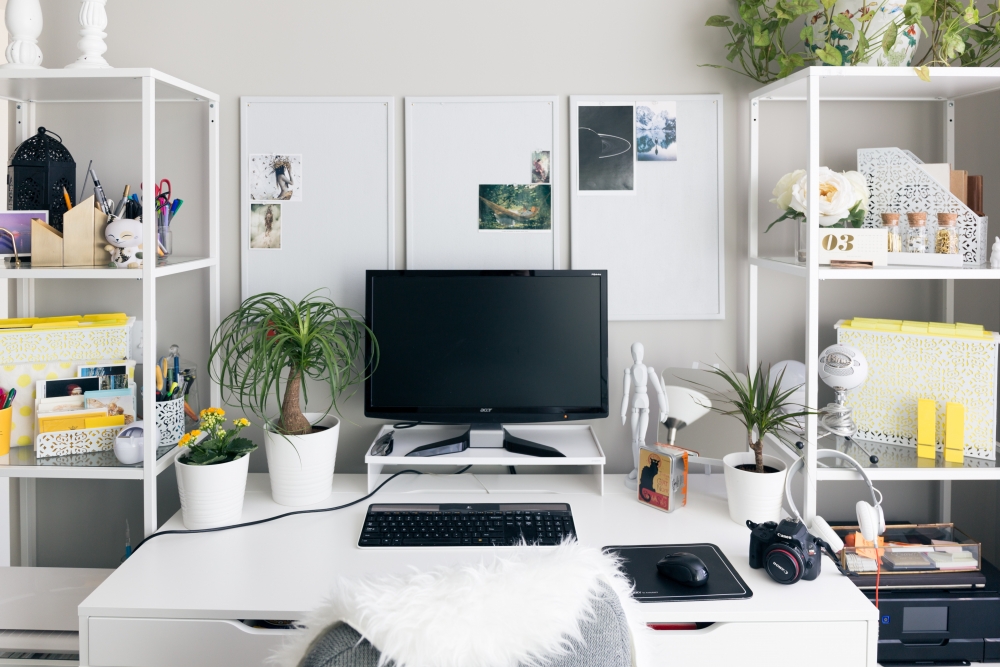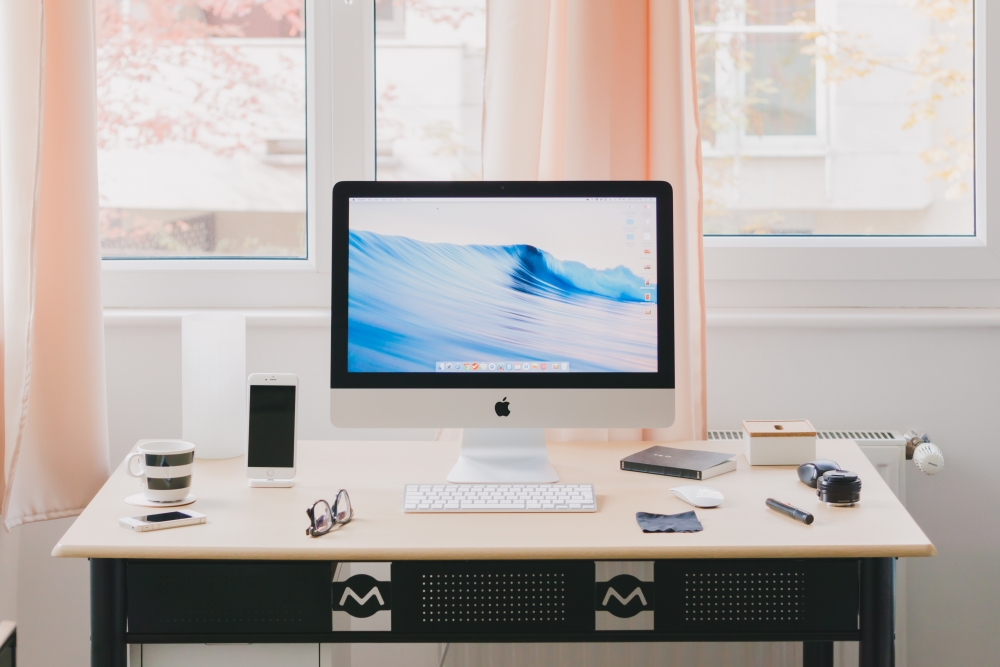How To Build A Productive Home Office – 10 Tips
With the rise of flexible working, a lot more people are choosing to work from home. However, with the rise of remote working, comes a new issue – how do you motivate yourself to stay on task when you work remotely?
When you’re in a traditional office environment, it is generally a lot easier to slip into “work mode” and stay focused than it is at home. Your house can be full of distractions; children, gaming consoles, chores, television, people dropping by . . . sometimes just being able to get into the right mindset is a challenge. (Especially if you like to work from the comfort of your pyjamas!)
That being said, if you can overcome the challenges and distractions, you can actually end up being more productive working from home. Today, we’re sharing our top tips on building a home office that will actually allow you to get stuff done.
1. Make sure everyone in your house knows when you’re “at work”
One of the largest disruptions when you work from home can be the people that live with you. At first, your presence in the house may signal availability – and you might find yourself being walked in on and disturbed throughout the day.
However, if you make it clear that you are still in the office (just your own office) and that you’re working, usually people will learn that you’re off limits during working hours. A few polite ways to say this could be:
“My company uses monitoring software on remote workers, so I need to stick to my work – could you come back at lunchtime?”
“I have a really tight deadline and I’m working at home to avoid all the noise of the office and get some deep focus. I’ll get back to you in a few hours.”
You could also have set “breaks” during the day where everyone in your households knows you’re accessible for ten or twenty minutes every few hours. That way, if they want to speak to you, they won’t burst in and interrupt you mid-flow – but they’ll feel like you’re making time for them. Or a system wherein you signal how available you are to be contacted. A good example of this is the hotel room policy: if you’re happy for people to walk in for a chat, leave the door empty; but if you need deep concentration hang a “Do Not Disturb” sign on the doorknob.
The key is to set clear boundaries that everyone agrees with – and enforce them.
2. Get dressed every day
A large benefit of working from home is not having to wear uncomfortable work clothes . . . but, as tempting as it may be, make sure you aren’t working in your pyjamas either. The act of getting up and dressed helps your brain to wake up and focus, otherwise there’s no signal telling you “time to work!”.
3. Have a separate space for working
Having a separate space dedicated to working helps your brain distinguish between “home” and “work”. Not only that, much like having an assigned desk in the office, having a set area to work every day can help you build a consistent routine. You know where everything is – and you know that once you’ve sat down it’s time to get down to it!
4. Invest in high-quality furniture that will help you work
When it comes to office furniture, much like mattresses, it’s well worth the investment. Both of these things are worth spending a bit extra on for the same reason: you spend so much of your time using them that they have a profound effect on your comfort and overall health.
Consistently sleeping on a bad mattress can damage your back – and so can sitting in an office chair that promotes bad posture.
We highly recommend investing in ergonomic furniture because it’s designed to help keep you comfortable, which keeps you productive throughout the day – but also minimises the risk of long-term back problems.
Remember, you’re going to be sitting in this chair for at least 8 hours a day; if it isn’t supporting your body, it’s likely to be causing problems.
5. Have some personal touches that inspire you
Much like in the office at work, having personal touches in your home office can help you stay engaged during the workday. Be careful to ensure that you aren’t allowing household clutter to encroach on your working space, though!
6. Add some plants
Plants in the office have a large array of benefits, from making you more productive to improving your health. They’re a great way to improve your office’s air quality – plus, they just make a nice aesthetic addition.
We’ve written an in depth post about the benefits of adding plants to your office and some ideas for how to on this blog before; if you’d like to learn more, feel free to read this post.
7. Build up and add storage to the walls
When you work from home, often you won’t have the luxury of space. To make the most of the space you do have available, consider building up and using your walls to your advantage by adding shelves and storage to them.
8. Consider a sit-stand desk
In recent years, there’s been a lot of research around the health risks of the sedentary lifestyles that a lot of us lead. Sitting time for a significant amount everyday contributes to a number of harmful consequences such as:
- Increasing your risk of developing type 2 diabetes by 90 percent.
- Slowing your metabolism.
- Increasing the likelihood of an early death.
- Obesity.
- Higher risk of developing dementia.
- Link to increased chance of cancer.
- And more…
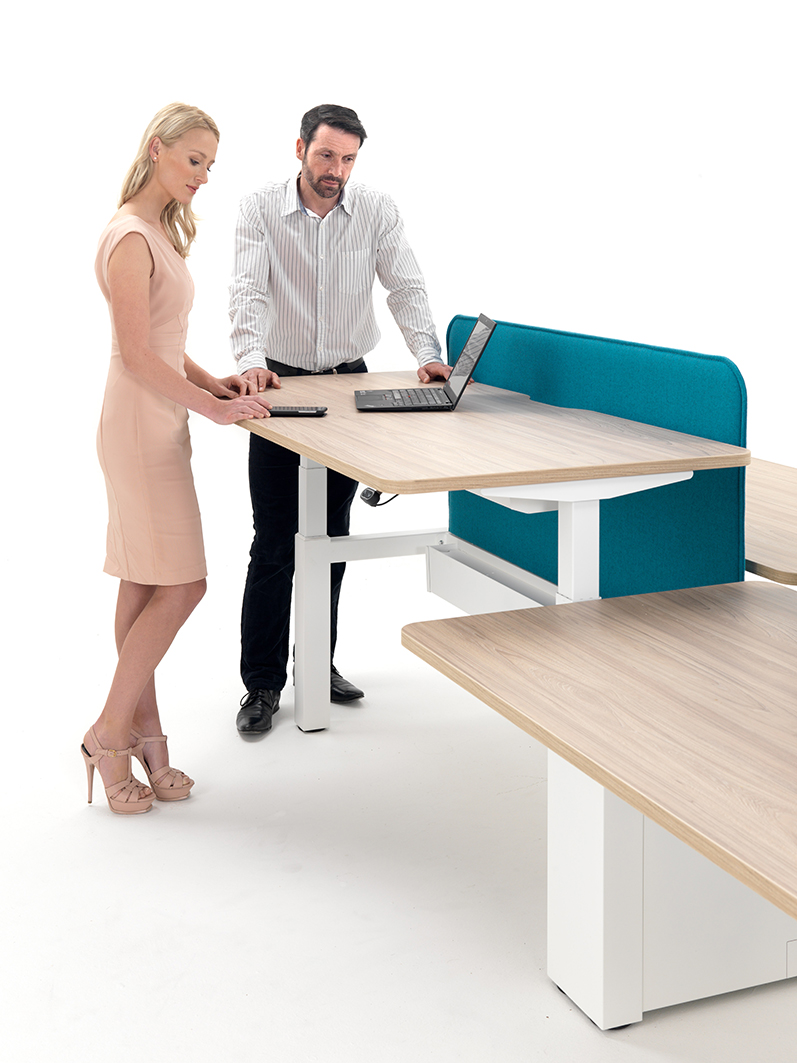
Sit stand desks are a great way to combat the negative effects of sitting for too long. We provide a wide range of sit stand desks suitable for all needs and budgets, feel free to send us an enquiry!
If you’d like an in-depth explanation of the pros and cons of sit stand desks, why they’re supposedly good for your health and some of the research behind them, feel free to read our post about whether you should buy a sit-stand desk.
9. Have set working hours – and stick to them
When you work from home, it’s easy to get distracted and not work enough or get carried away and work too much. If you set hours for work and stick to them, you’ll get into a consistent routine and find your body automatically switching to “work mode” during these hours.
10. Experiment with different working hours
If you work remotely and aren’t bound by needing to interact with your colleagues during the workday, you may want to try working different hours. Instead of 9 to 5, you may find you work better early in the morning or late at night. If you’re more productive at a certain time of day, why not take advantage?
Hopefully, you found these 10 tips helpful! If you are trying to build your perfect home office, Quills Group provides a wide range of high-quality office furniture suited for every budget, so don’t hesitate to contact us.

